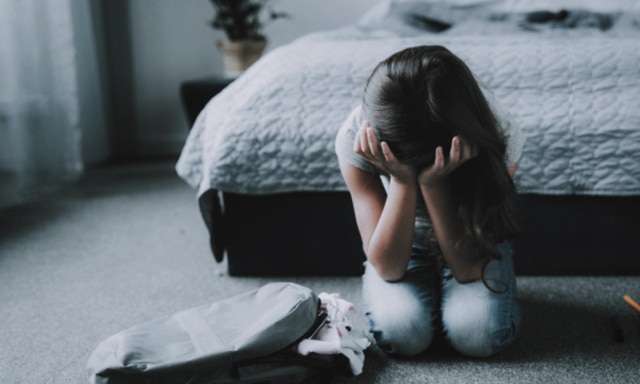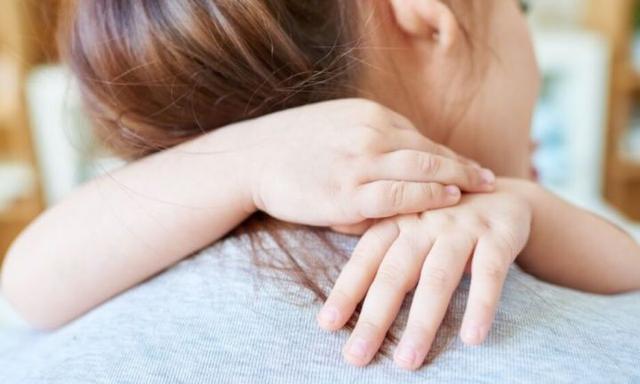The silence around abuse needs to stop. The covering of abuse needs to stop. The lack of action about abuse needs to stop.
It is not ok for a parent to tell their child to “Be quiet” or “Forget about it” or “Oh well, let’s move on”, after their child tells them of any kind of suffered abuse – be it physical, verbal, emotional, racial, discriminatory or sexual, because “We don’t want to cause any trouble” or “It’s too embarrassing for everyone involved.” I was trained to be obedient, polite, compliant, and to respect all adults no matter what, even if that meant my privacy was invaded, was bullied or my physical boundaries violated- otherwise it was considered rude to challenge any adult behaviour. How wrong that was!
It is imperative we teach our children to speak out about any behaviour that is not OK from others – no matter who the person is, no matter what position they hold in the family or society. Turning a blind eye when you know about or witness any kind of abuse and not doing anything about it, is basically saying and teaching our children that “It is OK”. Instead, we need to start encouraging and equipping our children to speak out against any kind of wrongdoing they experience, see or hear without fear of any retribution.

Listen and believe them. Source: iStock
Do not fear
Our children should know they will not ‘get in trouble’ for calling out inappropriate behaviour. It does not matter who the person is in the family hierarchy or how ‘well respected’ they seem in the community or how high their reputation is. If anyone is conducting themselves inappropriately in any way towards children, it needs to be called out immediately and dealt with approp
Too often children are fearful to speak up because it’s a close family member, who they were told they can trust or it’s someone in high authority and so are told they won’t be believed or the abuser threatens to harm them or convince them they will get in trouble. (N.B. A variety of other tactics are also used). The aim is to create a bond with our children that is so strong that they have zero fear about talking to us, knowing we will back them 100 percent and therefore rendering abusers’ tactics useless.
RELATED: What parenting is like for an abuse survivor

Hugs should be on their terms. Source: iStock
RELATED: If you don’t speak up about a child being abused, that is child abuse
Personal boundaries must be set
Gone are the days where children should be seen and not heard. They are people too, have rights, need to be heard and protected. When I was a child, I hated having distant adult male relatives kiss and cuddle me because they hadn’t seen me for a long time, it was something that was expected, that I had to endure to be polite. It was gross. Forced affection should not be negotiable. No one should have the right of passage to touch our children based on ‘who’ they are. Our children need to know that they don’t have to let anyone show affection to them physically if they don’t want to. Who cares if the other person is offended, our children have the right to choose who they let come into their personal space and need to know they have a right to set their own personal boundaries.
Modelling
We are to be the models of what we teach our children. If they see us standing up for what is right and honourable, then they will want to do the same. In addition, they will know what we personally stand for, otherwise, there’s a chance they will be confused and unsure about where we stand on certain issues, and when faced with the same issues’ they won’t be clear on how to respond.
I grew up in an environment of: keeping quiet, let it go, don’t get involved, we don’t want any trouble, it’s not our problem, etc. So, I did the same until I was in my late teens/ early 20’s, as I couldn’t remain silent any longer. This toxic environment of staying silent, turning a blind eye, etc. creates a cloak of secrecy for any abuser/bully and gives them the opportunity to keep hurting others. Our bonds with our children need to be rock solid as abusers love to divide their victims from family members who love them, by telling them the opposite.
No is no
As adults, it is our duty to respect a child when they say “No”. Saying no can be a difficult word to use especially if it’s a child saying no to an adult, because they may have been told not to offend people, to be pleasing to adults, and are to be ‘good’ children. The fact is they need to know that if they are uncomfortable with anything then their answer of “No” should be respected. Better to offend and feel awkward than to live with regret and if another adult gets upset at this then too bad, I personally don’t want my children around people like that anyway.
Empower your child
Everything we teach our children should be adding up to empowering them to speak out and develop that confidence to do so. Do they know who to speak to if something isn’t right and are wholeheartedly encouraged to do so? Have you explained what is acceptable behaviour and what isn’t? There are loads of real-life examples about people acting on their values, who have stood up for what is right, who refused to stay silent, and in doing so have caused real change in the world. If you have a shy child (like I was) there are games and role-plays you can do to help develop their confidence and even simple conversations like “What would you do if you saw/heard this or that?”
Every child everywhere, in every part of the world should be protected against any kind of abuse. It is up to everyone no matter who they are and what position they hold in society; to protect, speak out and to take the appropriate action. This cannot be ignored anymore. Why is abuse still happening in 2021? Why are people still making excuses, protecting bullies and abusers’ and making light of the unkind and damaging acts they commit? Change has to happen, and as parents, you can make a difference and a conscious effort right now, by encouraging your child to speak out.
Jacqui Preugschat is a mum, homeschooler, children’s book author, teacher and blogger. You can learn more on her website.

